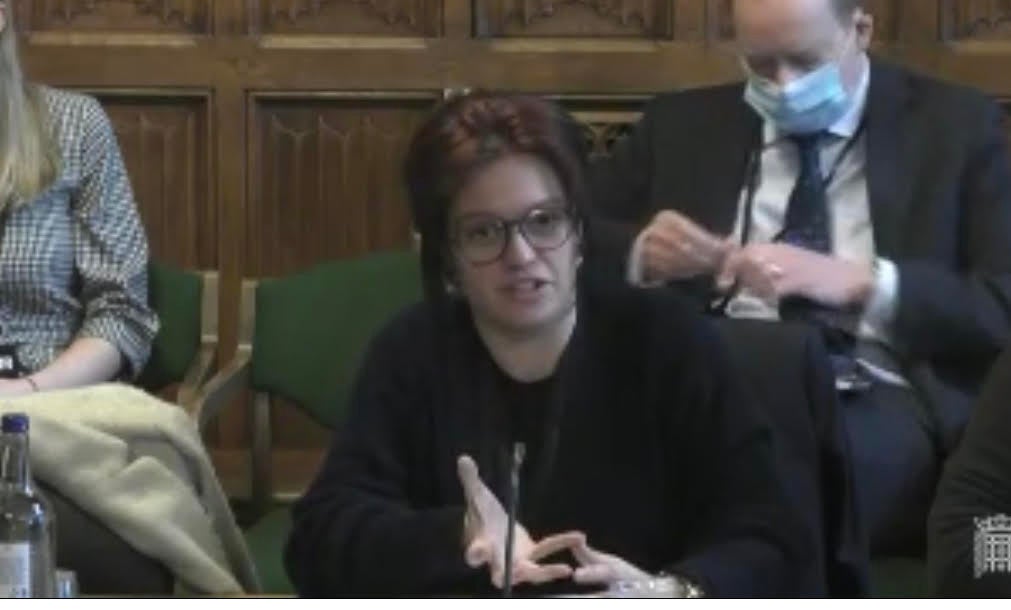Cost of living crisis will prove ‘fatal’ for people in Britain, Jack Monroe warns MPs
Food insecurity causes a never-ending loop of deprivation and illness, says anti-poverty campaigner

Food insecurity causes a “never-ending loop” of difficulty, that will prove “fatal” in some cases, anti-poverty campaigner Jack Monroe has told MPs.
Laying out the dire potential consequences of a deepening cost of living crisis, Ms Monroe warned that there are “millions of children living in poverty in Britain today” whose families’ financial situations have become “increasingly untenable” over the past decade.
“The impact of the cost of living crisis on those households is going to be, in some cases, fatal and that’s not a term that I use lightly,” Ms Monroe told the Commons Work and Pensions Committee.
MPs were told that people who are unable to adequately feed themselves at any point in life are more likely to go on to suffer mental health problems, chronic illness and other issues, while those who live in cold homes face a greater risk of lifelong respiratory conditions like asthma.
Her appearance came as the price of energy, food and other essentials looks set to soar even further as Russia’s invasion of Ukraine causes major disruption to global supplies of oil, gas and wheat.
Inflation is forecast to surge to 8 per cent later this year and households face a big rise to energy bills when Ofgem’s price cap jumps by more than half on 1 April.
Ms Monroe has argued that living standards are dropping faster for poorer households than official figures suggest, partly because of the decreased availability and rising prices of supermarkets’ cheapest ranges.
“That then makes it difficult to identify that a £20-a-week food shop a few years ago gets probably about two-thirds of what you’d be able to get for that £20 now,” Ms Monroe told the committee.
“And that’s not people deciding not to go to the theatre or not have legs of lamb or bottles of champagne, that’s people deciding ‘we won’t eat on Tuesday or Thursday this week’ or ‘we’ll turn the heating off’ or ‘we’ll skip meals’.”
Ms Monroe added: “The onus on ensuring that people are able to feed themselves adequately and decently and nutritiously shouldn’t fall on the price point of pasta in a supermarket.
“It should be something that people don’t have to do – those macro calculations walking round the supermarket. It should be something that’s available to everyone regardless of their circumstances.”
Morgan Vine, head of policy and influencing at Independent Age, told the committee that large numbers of older people were among the most vulnerable to rising energy costs.
“Older people are making choices every day between whether to put the heating on, or to boil the kettle or to skip a meal,” she said.
Chancellor Rishi Sunak is under increasing pressure to ease the burden of soaring living costs when he announces the government’s latest tax and spending commitments on 23 March.
Mr Sunak has been accused of deepening problems facing UK families by hiking national insurance contributions and only committing to cover a fraction of the increase to household energy costs with a £200 payment that will be paid back through future bills.
Subscribe to Independent Premium to bookmark this article
Want to bookmark your favourite articles and stories to read or reference later? Start your Independent Premium subscription today.

Join our commenting forum
Join thought-provoking conversations, follow other Independent readers and see their replies